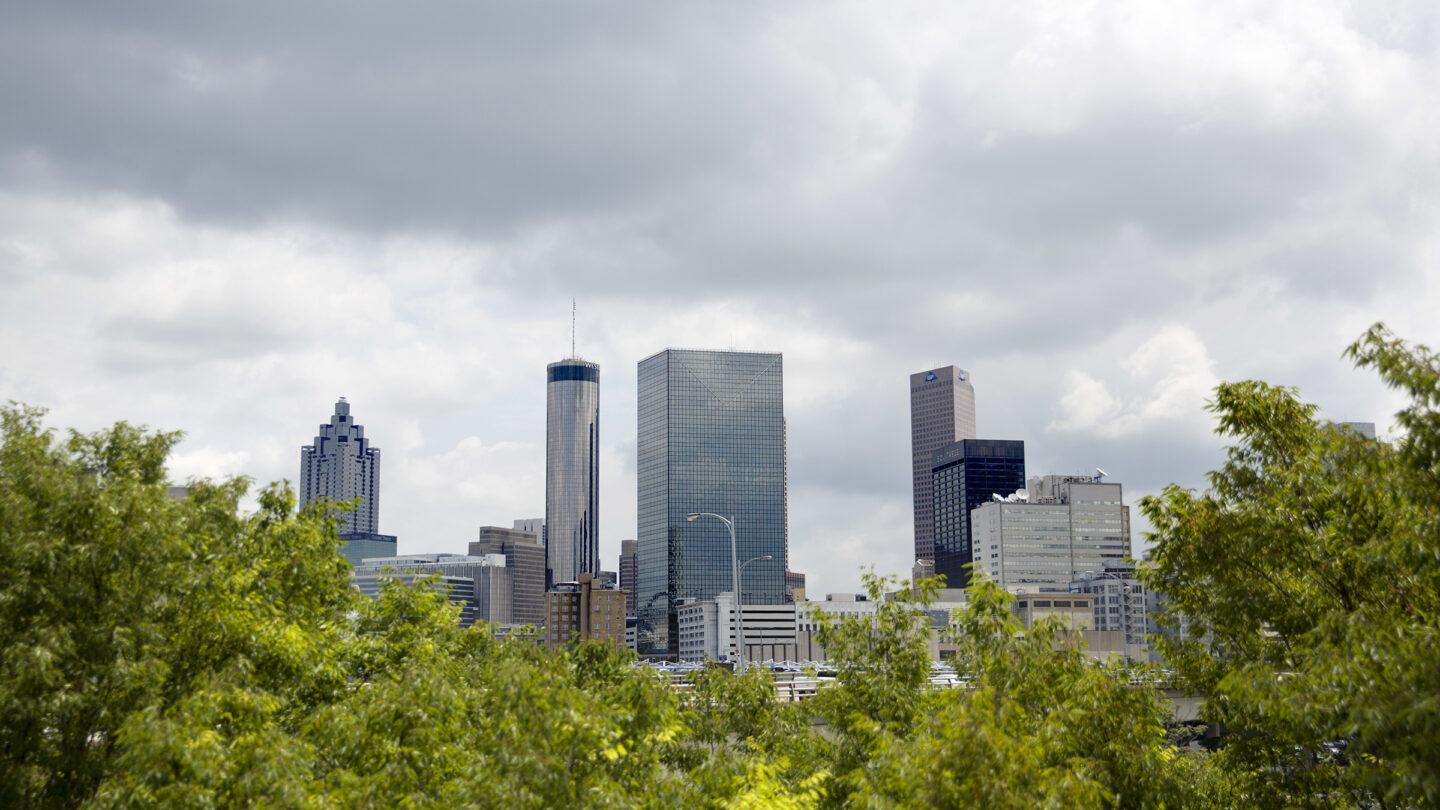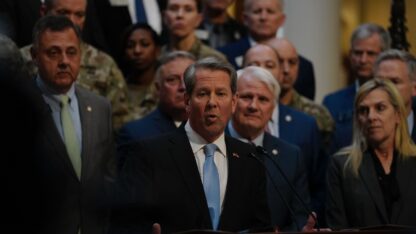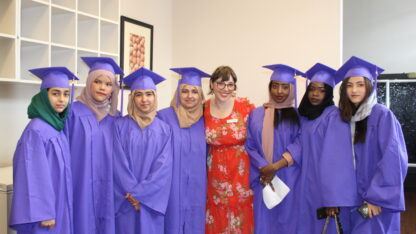Atlanta-area private sponsors meet refugee resettlement needs

Atlantans have stepped up to help refugees resettle in the city by taking part in a State Department program called Welcome Corps.
David Goldman / Associated Press
Leann Rubenstein showed a picture of a smiling woman sitting in front of a dining room table.
“She keeps a beautiful home that is filled with furniture from other people who have said, ‘I want her to have something beautiful,’” Rubenstein said.
She described Alan, a single mother in the U.S. who resettled to Atlanta from the Congo. Alan and her 5-year-old son Joshua are refugees who met Rubenstein through a State Department program called the Welcome Corps.
The program is designed to supplement the government’s refugee resettlement program. Every day, people can form a group of five or more, fundraise the $2,425 per refugee the government typically allocates, and help these newcomers fall into the fabric of everyday life.
In the year since the program launched, Atlantans have stepped up to help.
“There’s been so many bright spots in Atlanta, in Clarkston, that really paves the way for these sponsors to be vanguard’s of this work,” said Annie Nolte-Henning, the executive director of the Community Sponsorship Hub, the organization that implements the Welcome Corps.
Welcome Corps runs alongside those traditional resettlement agencies. Private citizen groups fill out extensive applications, are vetted, and receive training. The corps allows the U.S. to resettle more refugees during an era of historic need, said Una Bilic, the deputy director of new resettlement pathways for the International Rescue Committee (IRC). The IRC is one of nine organizations the federal government allows to resettle refugees.
“The community has the capacity to serve refugees that we as case workers can only dream about,” she said.
That looks like social capital. When a refugee comes to Atlanta and is supported by community members, Rubenstein said it is easier to split tasks to play to the strengths of those in the sponsor group. For Alan and Joshua, that looked like one person helping apply for jobs, another building a resume, and yet another getting Joshua enrolled in school.
It’s also easier to find things like a trusted doctor or a hairdresser, or even a friend with a spare dining room table.
Rubenstein said a friend held onto her grandmother’s table because it was sentimental. She wanted to pay forward those good memories to a new home.
“It really points out how we can make such a difference when you have a team of people who are on your side and rooting for you,” she said.
Nationwide, more than 15,000 people applied to sponsor more than 7,000 refugees in the program’s first year. Now, the State Department is expanding the program to allow people to sponsor refugees they know.







